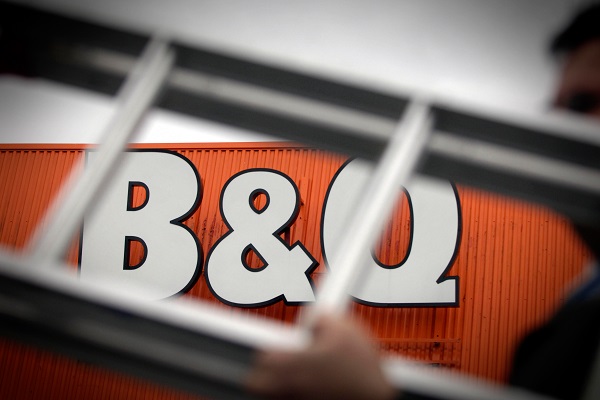Kingfisher admits profits to fall during difficult phase
With the B&Q owner having spent much of the past two years in a tight trading range, ii's head of markets talks through annual results and explains why investors have shunned the shares.
25th March 2024 08:26
by Richard Hunter from interactive investor

Some of the sting was taken out of these full-year numbers after two previous profit downgrades, but Kingfisher (LSE:KGF)'s results are nonetheless light of many reasons to be cheerful.
At a headline level, overall sales decreased to £12.98 billion in the year ended 31 January 2024, a drop of 3.1% on a like-for-like basis against estimates of 2.7%, and were even weaker in the final quarter, down by 4.3%. Adjusted pre-tax profit of £568 million was 25% lower than the corresponding period, although marginally ahead of the expected £557 million. However, without the adjusting figures pre-tax profit was down by 22% to £475 million, significantly shy of the estimated £547 million.
- Invest with ii: Open a Stocks & Shares ISA | ISA Investment Ideas | Transfer a Stocks & Shares ISA
The main culprit for the disappointing outturn was in France, which accounts for some 33% of overall sales. Low consumer confidence was held up as a major factor, resulting in like-for-like sales declining by 5.9% although the pressure on Castorama has been in evidence for some time.
Indeed, the group today announced that the unit would now be simplified, including a restructure as well as a modernisation of the store estate, while Kingfisher has also been trialling some of its more successful UK strategies abroad in an attempt to bolster sales.
Poland suffered difficulties also, and with additionally strong comparatives which resulted in a like-for-like sales decline of 9.5% in the period, alongside a challenging trading environment. Measures are also afoot to revitalise fortunes in the region, but in the meantime and along with France, the group as a whole is facing headwinds which are in need of some repair.
If there is a saving grace from the update, it is from the performance of UK and Ireland, the largest region which accounts for 49% of group sales, and from the continuing strength of Screwfix in particular. Even so, a marginal sales increase of 0.8% was not enough to offset declines elsewhere, and included a drop of 4.6% in own exclusive brand products as customers steered away from big ticket purchases such as bathrooms, kitchens and storage.
- Shares for the future: the best strategy for my pension savings
- Sign up to our free newsletter for share, fund and trust ideas, and the latest news and analysis
Screwfix is the business which has long been the company’s jewel in the crown, and Kingfisher has recognised this by continuing to roll out the brand. A further 40 stores are planned in the UK this year, as well as another 15 in France. Meanwhile, an e-commerce push in France and Poland is also on the agenda to drive sales.
There is some solace to be taken from an e-commerce channel which saw sales growth of 6.4% year-on-year to £2.3 billion, including a fair contribution from B&Q. in terms of overall financial health, net debt reduced to £2.1 billion from £2.3 billion, with the previously announced share buyback scheme of £300 million is now underway, while in the background a dividend yield of 5.3% provides some incentive for shareholders to wait for a potential recovery.
Current trading is pointing to a marginally improving trend although still in negative territory, with first quarter sales so far down by 2.3% on a like-for-like basis. The company plans £120 million of cost reductions for this year, with adjusted pre-tax profit expected to fall to between £490 million and £550 million.
While there could be a boost resulting from an improvement in housing demand in the UK in the next few months, Kingfisher is mindful that this would also come with a time lag until any such benefits wash through to home improvements demand.
Further out, Kingfisher believes that it still has much to go for. The continuing trend of hybrid-working and energy efficient renovations help underpin sales, while the strength of the Screwfix brand is clear and expanding.
In the meantime, however, the group is in a difficult phase and the share price has again reacted weakly to these results, adding to a decline of 14% over the last year, which compared to a gain of 7.1% for the wider FTSE100. For the moment, a positive direction of travel seems far from being established and the market consensus of the shares as a 'sell' reflects limited confidence in the immediate prospects.
These articles are provided for information purposes only. Occasionally, an opinion about whether to buy or sell a specific investment may be provided by third parties. The content is not intended to be a personal recommendation to buy or sell any financial instrument or product, or to adopt any investment strategy as it is not provided based on an assessment of your investing knowledge and experience, your financial situation or your investment objectives. The value of your investments, and the income derived from them, may go down as well as up. You may not get back all the money that you invest. The investments referred to in this article may not be suitable for all investors, and if in doubt, an investor should seek advice from a qualified investment adviser.
Full performance can be found on the company or index summary page on the interactive investor website. Simply click on the company's or index name highlighted in the article.